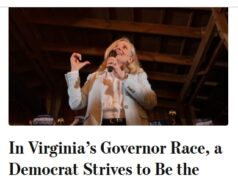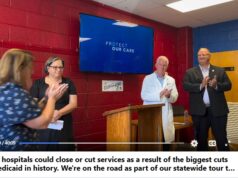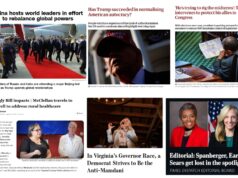 MEMO: How To Become The Next Governor of Virginia
MEMO: How To Become The Next Governor of Virginia
RE: If proposed soon, the Transportation Initiative That Wins the 2013 gubernatorial election
DISCUSSION:
Becoming the next Governor of the Commonwealth has never been easier. In 2009, candidate Bob McDonnell acknowledged the state’s growing transportation “crisis”, and proposed a plan he said would help “fix” it, centered on a scheme to privatize the right to sell “distilled spirits” now controlled by the state’s ABC system. The Governor’s badly flawed plan is now DOA, for all the right reasons.
But as Newton theorized, for every action there is an equal and opposite reaction. Thus, McDonnell’s spectacular fall offers someone else an equal opportunity to rise to the top of the 2013 gubernatorial class. Moreover this presents one of those rarest of political opportunities, the chance to earn a reputation as a bold leader with no downside risk.
A TRANSPORTATION INITATIVE THAT MAKES YOU THE NEXT GOVERNOR
It has three basic moving parts, in a win-win-win agreement for the Governor, the House and Senate majorities, and Republicans, along with Democrats generally. .
1) The State Senate agrees to work with the Governor and the House of Delegates to privatize the retail end of ABC liquor business, the state keeping the wholesale operation as is. Contrary to the conventional wisdom in the General Assembly, it is relatively easy to make such a retail-only plan revenue neutral based on available evidence from other states like Ohio. To be sure, such a retail-only model would be far different than the approach used by McDonnell in his badly conceived scheme favoring the big liquor interests and based on what Senator Warner says are “wildly optimistic” projections of one-time transportation revenues. By releasing McDonnell from his pledge to use ABC privatization to raise one-time Transportation funds by offering valuable state assets at fire sale prices, Democrats can craft a small business friendly approach that eliminates the anti-rural bias in the McDonnell plan plus maintains valuable state assets. Indeed, by eliminating the big up-front fees, this Democratic plan can do what even McDonnell says is necessary, make license holders pay the true cost of ABC enforcement, which costs the state right now $15 million more than it gets in fees. Moreover it will not require any new taxes. By reducing long term state salary, and pension costs, it enables the state to make compensation agreements with these new private sellers that enables taxpayers and the private sector to come out ahead.
Remember: Since the state still runs the wholesale operation, it will still make the same profit in this sector. Since the state gets to set the terms of the compensation agreements with the private retail sellers, they likewise get to guarantee the retail profit they want. Since these agreements must b renewed, adjustments can be made. Moreover, the state still owns the asset. If it doesn’t work as well as we would like, we can make future changes to our benefit. Personally, I believe the public has been implicitly promised for 86 years the right to approve such a fundamental change by statewide referendum. But I realize this a controversial position that might not be part of any final agreement.
2) The Governor and the House of Delegates in turn agree to work with the Senate to create a bipartisan “blue ribbon” Transportation 2050 Commission, the members being individuals who command the highest respect for their integrity, ability and experience on the subject of developing the first comprehensive such independent analysis of the state’s transportation system needs in over a generation. With all due respect to Mr. Fred Malek who headed the McDonnell Reform Commission, he was a GOP partisan, who even right now is heading one of those groups spending millions from undisclosed donors in an attempt to defeat Democrats.
This Transportation 2050 Commission would be formed to develop the hard and true facts as to the future transportation gird needs of the state. It would NOT be tasked to make any recommendations as regards the funding of such an infrastructure build-out.
3) Once the Transportation 2050 Commission had issued it’s report – let’s use January 1, 2012 as a target date – then the Governor would either task them, or create a new group, of similarly qualified individuals, to address the funding issues. This second report would be expected by January 1, 2013.
DISCUSSION:
As former Senator Pat Moynihan, who served both Democratic and Republican Presidents, said: Everyone is entitled to their own opinion, but not to their own set of facts. Right now, we have not achieved such a level playing field, and thus, in my view, no meaningful progress is likely.
This 3 part agreement is therefore conceived to end this gird lock. The Governor gets to take a first step toward his goal of privatization instead of a header off the political cliff. The House of Delegate majority avoids having to effectively reject a Governor of their own party, and they get to have an equal say in the appointment of what could be the most important Commission of the 21st century. The Senate majority admittedly gives up the political pleasure of seeing a GOP Governor fail badly, instead giving him a chance to snatch a small victory from the jaws of a big defeat. But in turn, the Governor has to agree to give Democrats want they want but can’t get now nor in the foreseeable future: a bipartisan Commission with the credibility to get everyone to start future discussions with the same set of proven facts.
One can not claim to be serious about fixing a crisis and at the same time, as President Reagan pointed out, not want to hear all the facts. A responsible leader first makes an effort to get the true and hard facts before putting those 10 toes into political concrete. Higher taxes must always be a last resort. Right now, the average working Virginian can not afford any more taxes. But they also know the crumbling nature of our transportation infrastructure. Hopefully, economic times will soon improve and now armed with the true and hard facts, the GA can have a more informed discussion.














